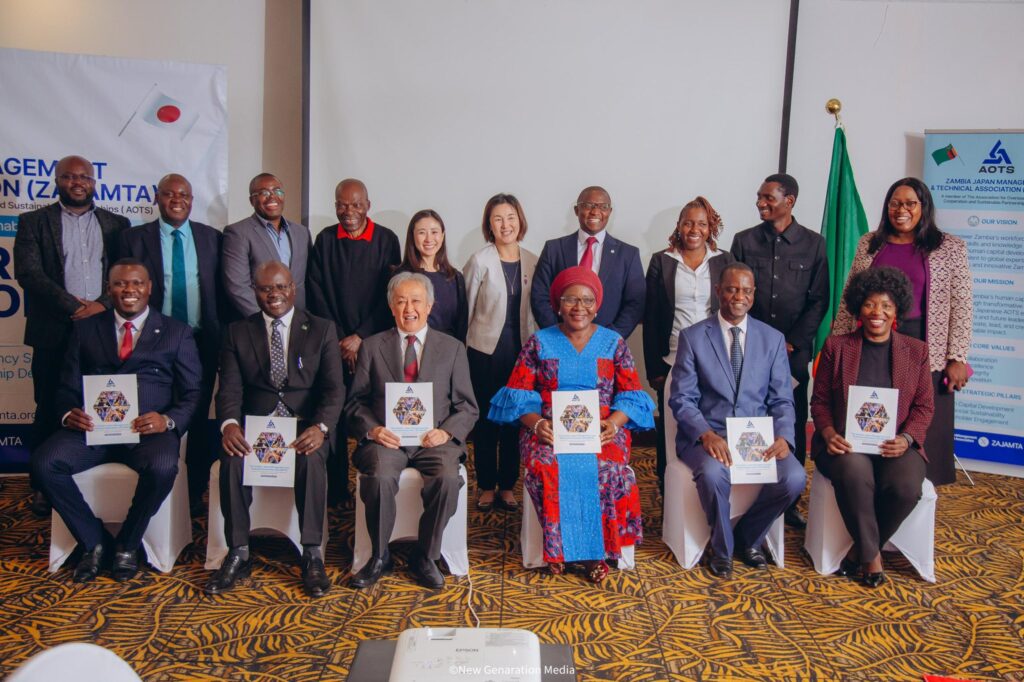Human Capital Development Central to Zambia’s Economic Transformation – Minister Tambatamba
Minister of Labour and Social Security, Brenda Mwika Tambatamba (MP), has emphasized the critical role of human capital development in driving economic transformation in Zambia.
During the relaunch of the Zambia-Japan Management and Technical Association (ZAJAMTA) and its 2025–2027 Strategic Plan, she highlighted that increased productivity is a vital component for fostering business growth and national economic progress.
The newly launched strategic plan focuses on three key pillars: Human Capital, Financial Sustainability, and Stakeholder Engagement. Ms. Tambatamba stressed the importance of measuring productivity based on output rather than the number of hours worked, underscoring the Government’s commitment to enhancing skills development and promoting national productivity.
The plan aligns with the Eighth National Development Plan (8NDP) and supports the New Dawn Government’s vision of placing human capital at the center of Zambia’s economic transformation.
“The relaunch of ZAJAMTA is a clear demonstration of our commitment to promoting skills development and productivity through strategic partnerships, such as those with the Kaizen Institute and the National Productivity Development Department,” said Minister Tambatamba. “We urge ZAJAMTA leadership to execute this strategic plan with focus and determination for meaningful national impact.”
The event also saw Japan’s Ambassador to Zambia, His Excellency Takeuchi Kazuyuki, reaffirming Japan’s dedication to human capital development. Drawing on Japan’s own post-war success, Ambassador Takeuchi highlighted the importance of practices such as lifetime employment, continuous education, and Kaizen continuous improvement—principles that Japan credits for its economic growth.
“ZAJAMTA’s approach to human resource development mirrors the practices that contributed to Japan’s economic miracle. We believe that Zambia can benefit greatly from these strategies, particularly in the context of fostering ongoing employee growth,” Ambassador Takeuchi stated.
The Ambassador also expressed hope that the relaunch would lead to the doubling of Zambian participants in training programs in Japan, further strengthening the Zambia-Japan partnership.
Yoshida Yasuhiko, President of the Association for Overseas Technical Cooperation and Sustainable Partnership (AOTS), also reiterated Japan’s commitment to supporting Zambia’s economic growth, particularly through infrastructure development in line with the 8NDP.
ZAJAMTA President, Mr. Shipango Muteto, highlighted the association’s long-standing role in facilitating skills transfer and professional growth since its establishment in 1979. With over 500 Zambian professionals trained in Japan and more than 300 trainees hosted locally, ZAJAMTA continues to be a crucial player in Zambia’s workforce development.
In line with the new strategic plan, Mr. Muteto announced the creation of the Kenshu Center, a training and management hub designed to foster innovation in management and technology, further strengthening Zambia’s human capital base.
“Human capital is key to the development of any nation. By engaging our workforce to promote productivity, Zambia will realize its full potential,” concluded Mr. Muteto.



